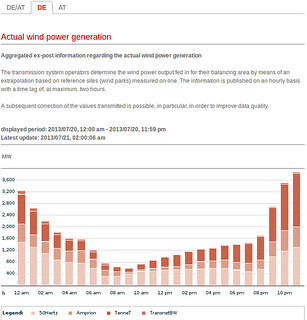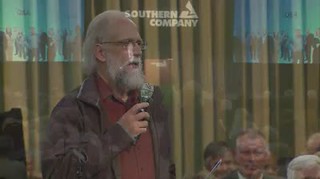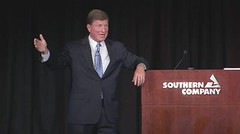Remember BITNET, FidoNet, or UUCP? Nope, the Internet overtook all of those. And in 20 years that’s how young people will remember coal and natural gas plants, although the waste-disposal costs of nukes will be with us for ten thousand years. Solar power is going to overtake all other power sources within a decade. Here’s why I think that.
Jerry Grillo quoted me in Georgia Trend July 2013, Sun Dancing: As Georgia’s solar capacity shoots skyward, a new state utility is proposed,
“Solar power is the fastest-growing industry in the world, and it’s growing along in the same way the Internet did,” says John S. Quarterman, a Harvard-educated author and Internet pioneer who launched the first commercial online newsletter, among other things, and who lives in rural Lowndes County.
“Think back 20 years to 1993. How many people had heard of the Internet? And look at how far we’ve come. What I’m seeing with solar energy is the same kind of exponential growth. It’s clean energy that works, and it generates jobs.”
Here are 1992 ten-year graphs of Internet growth from that newsletter, Matrix News, using Continue reading
















